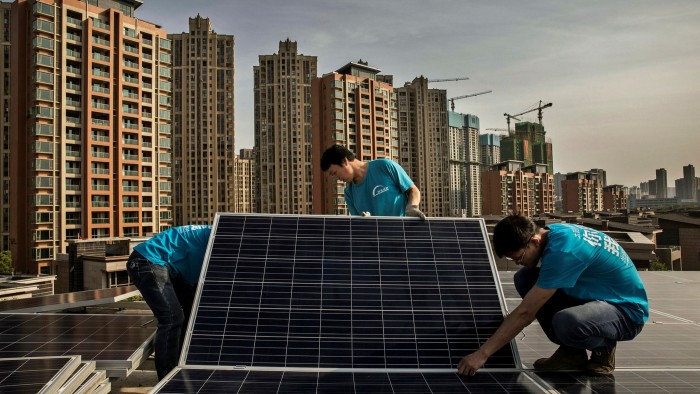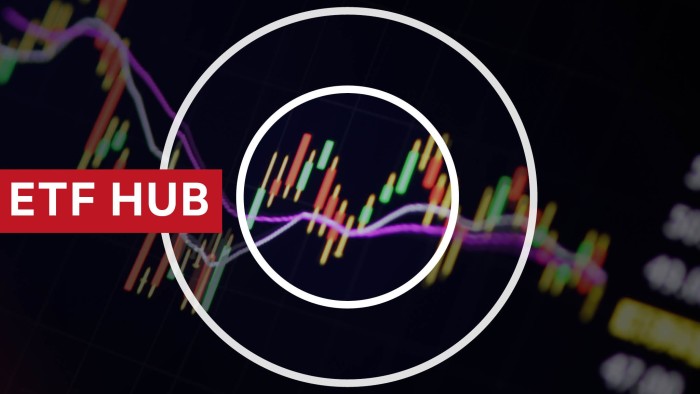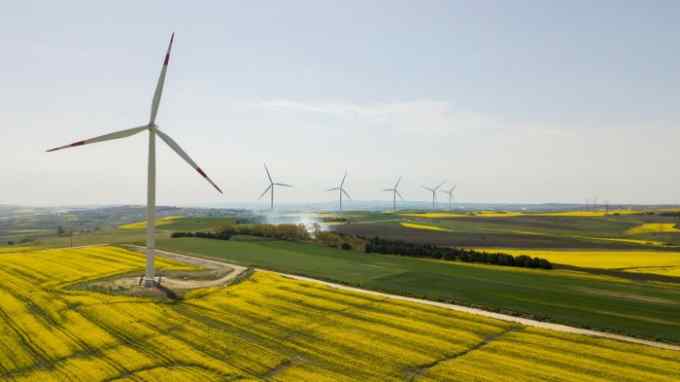JPMorgan Asset Management plans ESG ETFs for Asian clients

Simply sign up to the Exchange traded funds myFT Digest -- delivered directly to your inbox.
JPMorgan Asset Management is looking to offer Asian institutional investors a range of environmental, social and governance exchange traded funds, as well as thematic and sector-based ETFs.
The US-headquartered fund manager has yet to list any pure ESG or thematic ETFs in any market. But rising investor demand in the Asia-Pacific region, as well as an increasing number of fund launches across the industry in those investment areas, is driving development.
Asian investors have expressed strong expectations of future growth for ESG ETFs and thematic ETFs, according to a survey of 320 professional investors conducted by JPMAM earlier this year.
Of the 40 investors from the Asia-Pacific region, 70 per cent expected ESG ETFs to grow strongly over the next two to three years, compared with a global average of 59 per cent.

This article was previously published by Ignites Asia, a title owned by the FT Group.
“We’ve been really pleasantly surprised around the progressive nature of Asian investors when it comes to talking about more niche strategies,” said Sean Cunningham, JPMAM's Hong Kong-based head of Asia ETFs.
Many global investors believe ETFs are really only applicable to passive investment strategies, Mr Cunningham said, but Asian investors are particularly open to having a conversation on more innovative strategies using an ETF wrapper.
There is a very strong trend in Asia towards thematic and more strategic beta strategies, and then there is always an overlying ESG conversation that has been going on with clients in the region, he said.
“You’re very unlikely to have a client conversation nowadays around anything that doesn’t have an ESG element to it, or at least for that to be raised as something for the future,” he added.
Mr Cunningham said clients in Asia were looking at ESG developments in Europe, where conversations on ESG were very advanced and where there were going to be a lot more ESG and sustainability-focused launches.
“Given that there is this very high demand, we will launch products around the globe that are appropriate for Asian institutions,” he said.
JPMAM is still early in the product development stage for future ETFs, but ESG is forming a large part of what it is thinking about from a strategy perspective.
The company is looking to have conversations with clients on their ESG or sustainability needs, Mr Cunningham said, though he declined to provide a timeline on when a JPMAM ESG ETF might become available to investors.
The new thematic or ESG ETFs will be listed alongside JPMAM’s current range of ETFs listed in the US and Europe that it first established in June 2014. The company has no plans yet to launch a locally domiciled ETF in Asia outside China.
In May this year, Ignites Asia revealed that JPMAM had started building its regional ETF business in China through China International Fund Management, its onshore joint venture that it is close to securing full control of.
Outside Europe and North America, there are 75 passive sustainable funds, including 20 in China, 17 in Australia, eight in South Korea, six each in Japan and New Zealand, and three in Taiwan.
Europe accounts for 76 per cent of all global passive ESG assets, which totalled $249.3bn worldwide as of end-June, according to a Morningstar report.
Europe’s ESG funds industry has benefited from a very strong regulatory push, which has resulted in strong flows into ESG ETFs, according to Jackie Choy, Morningstar’s Hong Kong-based director of ETF research for Asia.
While there is not that same strong regulatory support in Asia yet, Mr Choy said there was anecdotal evidence of more inquiries about ESG ETFs from regional institutional investors.
Brown Brothers Harriman conducted a global survey of 300 institutional investors, financial advisers and fund managers, including 100 in the greater China region encompassing mainland China, Hong Kong and Taiwan, earlier this year. About a quarter of greater China respondents said they expected to allocate between 21 per cent and 50 per cent of their portfolio to ESG ETFs.
“It’s definitely been an area that has been gathering momentum across Asia, definitely this year,” said Chris Pigott, Brown Brothers Harriman’s head of Hong Kong ETF services.
Inside ETFs

The FT has teamed up with ETF specialist TrackInsight to bring you independent and reliable data alongside our essential news and analysis of everything from market trends and new issues, to risk management and advice on constructing your portfolio. Find out more here
The survey also asked institutional investors in greater China where they would like to see more local exposure in terms of new ETF products: ESG came second after managed risk/low volatility, he added, which indicated that investors were looking for more options in being able to access these types of ESG products.
A lot of the interest in ESG products is coming from regional pension funds, endowment funds and insurance companies, said Mr Pigott, adding that banking channels such as private banks had also started to look more closely at these products over the past year or so.
The majority of the conversations JPMAM has had with regional clients on thematic ETFs have involved topics such as technology, cloud computing, working from home and population demographics.
“I think that’s to be expected because the passive space is already quite commoditised and well covered, so it’s expected that you’ll have more of these niche exposures,” said Mr Cunningham. “But it has been something quite visual for the market this year just how many of these [thematic] funds are getting launched and gaining traction.”
*Ignites Asia is a news service published by FT Specialist for professionals working in the asset management industry. It covers everything from new product launches to regulations and industry trends. Trials and subscriptions are available at ignitesasia.com.

Comments